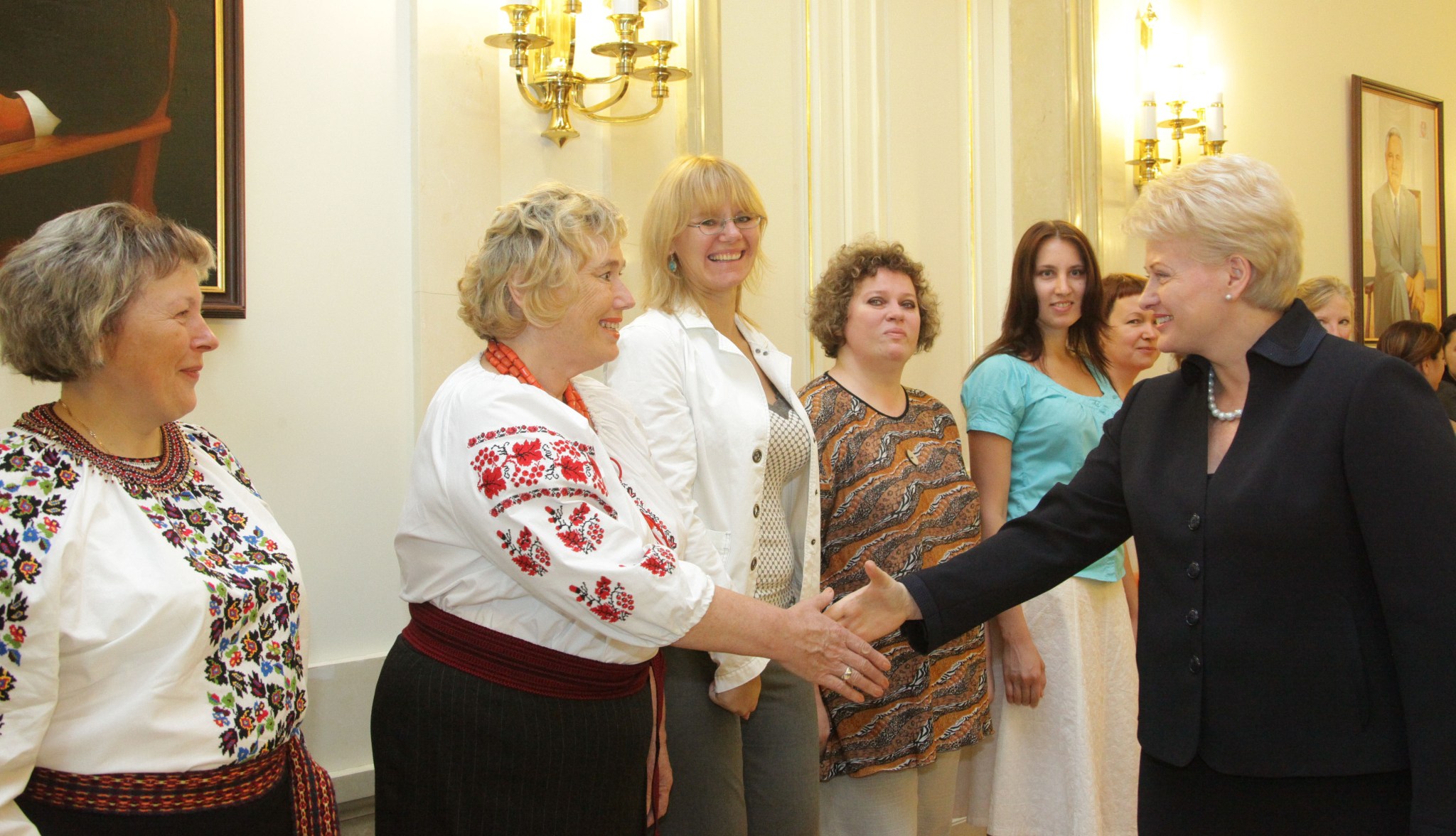Lithuanian President Speaks at WDN Conference on Women’s Political Success

The Women’s Democracy Network (WDN) recently co-hosted a conference, “Coalesce for Success,” with the Community of Democracies Working Group on Gender Equality for women leaders active in politics and civil society from Eurasia. Participants from Belarus, Georgia, Moldova, Lithuania, Russia, Ukraine and the United States gathered in Vilnius, Lithuania, where they discussed coalition building and the use of public opinion research for message development.
Speaker of the Lithuanian Parliament Irena Degutiene opened the conference by sharing her own experiences as a woman in politics for more than 20 years. Speaker Degutiene advised that the best way to operate in politics is through compromise rather than conflict, and through partnership with women and men.
The U.S. Ambassador to Lithuania, Anne Derse, also spoke about the importance of collaboration with colleagues. Ambassador Derse emphasized that countries succeed politically, economically and socially when focused on developing the potential of women and men equally.
During roundtable discussions, participants discussed the importance of encouraging women to coalesce around a shared cause to further their impact on any given issue. Alison Fortier, a board member of IRI, moderated a panel discussion on the challenges and opportunities of coalition building in governments and organizations. Conference participants also explored the relationship between political party activists, elected officials and civil society, and how these groups can work together to increase the participation of women in public life, as well as address issues facing women.
Virginija Langbakk, director of the European Institute for Gender Equality, discussed the role of the European Institute and how it supports the work of European Union (EU) institutions. She also spoke about her goal to transform the European Institute into a greater source of knowledge on gender issues. The EU’s focus on the fight against gender discrimination was illustrated when Laima Vengale, the Senior Adviser for the Ombudsman of Equal Opportunities, noted that during the preparation process for EU membership, Lithuania fully developed national legislation in line with EU gender equality law. Ms. Vengale also described the role of an ombudsman in the participants’ respective countries and how citizens can utilize an ombudsman to carry out projects aimed at raising awareness about gender equality issues.
The program also included several workshops on coalition building and public opinion research by experts from the United States and Lithuania. Dorene Kainz, managing director of a grassroots advocacy and political consulting firm, conducted a workshop on coalition building and emphasized the importance of keeping true to the main goal in order to bring a larger group behind an issue to gain momentum for a cause or candidate.
Rasa Alisauskiene, director of General Baltic Surveys at the Gallup Organization, conducted a workshop on public opinion polling and described how to utilize different types of surveys to identify the issues facing their society, or target group; and to create messages which address these issues. Following the presentation, participants developed platforms and identified potential partners for their respective organizations using mock surveys of public opinion distributed to participants.
Evaldas Ignatavicius, Lithuanian Vice Minister of Foreign Affairs and Co-Chair of the Community of Democracies Working Group on Gender Equality, highlighted the importance of having organizations such as IRI and WDN collaborate with governments in the Community of Democracies to facilitate democracy assistance worldwide.
Top